Discover Daybreak
Daybreak

Daybreak
Author: The Ken
Subscribed: 21,034Played: 197,060Subscribe
Share
© (c) 2023 The Ken
Description
Business news is complex and overwhelming. It doesn’t have to be. Every day of the week, from Monday to Friday, Daybreak tells one business story that’s significant, simple and powerful.
Hosted from The Ken’s newsroom by Snigdha Sharma and Rachel Varghese, Daybreak relies on years of original reporting and analysis by some of India’s most experienced and talented business journalists.
Hosted from The Ken’s newsroom by Snigdha Sharma and Rachel Varghese, Daybreak relies on years of original reporting and analysis by some of India’s most experienced and talented business journalists.
671 Episodes
Reverse
This week, Goa said it is actively considering a ban on social media for children under 16, inspired by Australia’s new law. Andhra Pradesh has also set up a panel to examine whether similar restrictions could work there. The push reflects rising anxiety around teen mental health, cyberbullying, and exposure to harmful online content. Supporters argue platforms are unsafe by design and impossible to regulate through guardrails alone. Critics question whether bans can keep up with technology or address deeper social issues. In this episode, hosts Snigdha Sharma and Rachel Varghese step back from the rhetoric to ask what a ban would actually mean for children, parents, and platforms. Daybreak is produced from the newsroom of The Ken, India’s first subscriber-only business news platform. Subscribe for more exclusive, deeply-reported, and analytical business stories.
This week, India and the European Union signed a sweeping trade deal that cuts or removes tariffs on over 90% of goods traded between them. The headlines quickly focused on what might get cheaper, from wine and cheese to cars and chocolates. But trade deals do not change prices overnight. Tariff cuts roll out over time and work their way through importers, distributors, taxes, and markets before they ever reach consumers. In this episode, we look at what past trade deals show about everything between a trade deal being signed and actual prices changing for a consumer.Tune in.Daybreak is produced from the newsroom of The Ken, India’s first subscriber-only business news platform. Subscribe for more exclusive, deeply-reported, and analytical business stories.
Every winter, Delhi chokes. Masks become mandatory, air purifiers work overtime, and life somehow goes on. But beyond the health crisis lies an economic catastrophe most people ignore—until now.Gita Gopinath's recent warning at Davos sparked controversy, but the numbers don't lie: pollution is costing India 1.67 million lives and nearly 3% of GDP annually. Meanwhile, China turned its pollution crisis around in just a few years with ruthless accountability.India has the knowledge and technology. What it lacks is political will. And every year of delay continues to put lives at risk and pushes the $5 trillion economy dream away.Daybreak is produced from the newsroom of The Ken, India’s first subscriber-only business news platform. Subscribe for more exclusive, deeply-reported, and analytical business stories.
India’s new data protection law is reshaping how companies talk to customers on WhatsApp. Messages that once felt routine now carry legal weight and are tied to consent, security, and user rights. Since the Digital Personal Data Protection Act became operational, businesses have begun reworking how they collect and manage personal data. That shift has created a fast-growing market for compliance tools, drawing startups and established firms into the same space. As companies rush to avoid heavy penalties, disagreements are emerging over who should manage consent and how independent they need to be. The bigger question is how much control users will really have over their data.Tune in.Daybreak is produced from the newsroom of The Ken, India’s first subscriber-only business news platform. Subscribe for more exclusive, deeply-reported, and analytical business stories.
When your insurance card suddenly stops working, it is not just a glitch. It is the symptom of a deeper crisis in Indian healthcare.Hospitals say insurers have failed to update reimbursement rates despite medical inflation. Insurers say hospitals are inflating bills and resisting standardization.Millions of policyholders are caught between them, forced to pay out of pocket for care they thought was covered.How did India’s healthcare system end up in this deadlock. And who really decides what your treatment is worth?Tune in.*This episode was originally published on November 4th, 2025Daybreak is produced from the newsroom of The Ken, India’s first subscriber-only business news platform. Subscribe for more exclusive, deeply-reported, and analytical business stories.
When a public electric bus breaks down in India, three agencies get notified. None of them can actually fix it. The buses don't belong to the cities that run them. The contracts sit with central agencies. The warranties belong to manufacturers. When a four-year-old bus stalls because its battery management system glitched, the city logs a complaint, calculates a fine for the manufacturers, and takes the bus off the route. Commuters are left slim pickings. And India's about to deploy thousands more using the same model.Daybreak is produced from the newsroom of The Ken, India’s first subscriber-only business news platform. Subscribe for more exclusive, deeply-reported, and analytical business stories.
India is building data centres at unprecedented speed to support cloud services, AI, and digital growth. At the same time, cities across the country are struggling with water shortages and repeated contamination of drinking-water supplies. A new United Nations report describes this condition as water bankruptcy. It is the stage where water systems continue to function, but only by drawing down reserves that cannot recover fast enough.In this episode, host Snigdha Sharma looks at how India’s data centre push fits into that reality, drawing lessons from cities abroad where similar tensions have already surfaced.So as India builds for a digital future, the question is simple: who decides how much water that future can afford?
Sam Altman called ads a "last resort" in late 2024. That day has arrived. OpenAI just announced ChatGPT is running ads—personalised ones based on your conversations. The company spent $8 billion in 2025 alone with zero profit, and an essay predicted they'll burn through cash by 2027. Meanwhile, Google's Gemini is betting on staying ad-free, preserving user trust while ChatGPT strains it. We break down the enshittification playbook, why OpenAI's "code red" memo signals desperation, and whether ads can actually save a company hemorrhaging billions.Daybreak is produced from the newsroom of The Ken, India’s first subscriber-only business news platform. Subscribe for more exclusive, deeply-reported, and analytical business stories.
India has become one of the world’s largest electronics manufacturers, powered by scale, assembly lines, and global contracts. But much of the design, components, and technology still sit elsewhere. In this episode, we look at why the government is now backing electronics components, what India’s EMS firms built first, and what they postponed. As India pushes deeper into the supply chain, the question shifts from volume to ownership. What does it take to move from assembling electronics to truly building them? Also, how did China get it right?Tune in.Daybreak is produced from the newsroom of The Ken, India’s first subscriber-only business news platform. Subscribe for more exclusive, deeply-reported, and analytical business stories.
For over a decade, Indian startups have chosen to be incorporated in Delaware and Singapore when raising venture capital. Now India wants to change that with Gift City—a financial enclave designed to compete globally. But can it? We explore why founders still choose Delaware's speed and legal certainty, what Gift City offers to funds but not startups, and the structural gaps that need fixing.Tune in.Daybreak is produced from the newsroom of The Ken, India’s first subscriber-only business news platform. Subscribe for more exclusive, deeply-reported, and analytical business stories.
AI is learning healthcare from systems that are stretched and uneven. In this episode, hosts Snigdha Sharma and Rachel Varghese discuss what tools like ChatGPT Health and Claude for Healthcare could mean in India. We talk about how people already use AI to understand symptoms and reports, how hospitals deal with data and paperwork, and how bias and privacy shape these tools. Tune in.Daybreak is produced from the newsroom of The Ken, India’s first subscriber-only business news platform. Subscribe for more exclusive, deeply-reported, and analytical business stories.
India’s soda shelves have changed almost overnight. Coke and Pepsi now sell zero-sugar versions of their drinks at prices as low as 10 rupees. The move came after Reliance launched Campa Cola with its own budget zero-sugar option. Now, they are taking over in big cities and small towns alike.But what looks like a health trend is really a business strategy. What is really inside those bottles? And what does it mean for consumers?Tune in.Daybreak is produced from the newsroom of The Ken, India’s first subscriber-only business news platform. Subscribe for more exclusive, deeply-reported, and analytical business stories.
Four months after India's nationwide ban on online gambling ads, Meta platforms were still running them—140 in December alone. A Reuters investigation into leaked internal documents reveals this isn't an oversight. Meta made specific calculations about how much enforcement it could afford, and governments worldwide are hitting the same wall. From Malaysia to the Philippines, removal requests pile up while the ads keep running. What happens when a platform decides compliance is negotiable?Daybreak is produced from the newsroom of The Ken, India’s first subscriber-only business news platform. Subscribe for more exclusive, deeply-reported, and analytical business stories.
Investing extra money can be confusing, no matter how big or small the amount. What works for someone with Rs 1 crore is very different from what suits someone with Rs 1 lakh or Rs 10 lakh. Experts say everyone should first take care of basic needs before investing.There are many simple, logical, and even unconventional ways to invest. Tune in.Daybreak is produced from the newsroom of The Ken, India’s first subscriber-only business news platform. Subscribe for more exclusive, deeply-reported, and analytical business stories.
India's Fund of Funds for Startups 1.0 is winding down this March—but it's falling short of its goals. Of the ₹10,000 crore mandate, only ₹6,500 crore has been disbursed, and just ₹3,200 crore has actually reached startups. Meanwhile, FFS 2.0 remains stuck in limbo with no guidelines released yet. Despite catalyzing India's startup boom—from 3,000 startups in 2016 to over 200,000 today—the program faces criticism over cheap terms for fund managers, delays, and transparency issues. As the government prepares FFS 2.0, fixing these operational inefficiencies will be crucial.Tune in.Daybreak is produced from the newsroom of The Ken, India’s first subscriber-only business news platform. Subscribe for more exclusive, deeply-reported, and analytical business stories.
In this episode we fill you in on four standout stories from the past week.First, a quick look at how the Venezuela crisis is benefiting Reliance and ONGC;Next, why the quick fashion promise stands on shaky ground;Third, how AI has been filling up Indian shopping carts; And finally, why the discourse about Grok AI is starting to sound a little lopsided. Tune in.Read The Ken's story on quick fashion here.Daybreak is produced from the newsroom of The Ken, India’s first subscriber-only business news platform. Subscribe for more exclusive, deeply-reported, and analytical business stories.
10-minute delivery has quickly gone from novelty to expectation.In this episode, through conversations with delivery workers and the gig workers’ union leader, host Snigdha Sharma argues how the 10-minute delivery model intensifies existing problems in gig work.Is it is a promise we really need to be kept for us? Tune in.Daybreak is produced from the newsroom of The Ken, India’s first subscriber-only business news platform. Subscribe for more exclusive, deeply-reported, and analytical business stories.
Apollo 24/7 has bled money for five years. But its loyalty program, Apollo Circle, might be the cure. For 299 rupees yearly, members get free teleconsultations, priority access, and discounts—locking them into Apollo's ecosystem of hospitals, pharmacies, and diagnostics. The strategy is working: average orders doubled, losses shrank, and Apollo Health Co turned profitable. Now the company wants Circle to drive breakeven next year while funneling customers away from neighborhood clinics into its high-margin private labels and hospital services. It's a playbook borrowed from Amazon—and Apollo's betting everything on it.Tune in.Listen to the latest 90,000 hours episode here. Daybreak is produced from the newsroom of The Ken, India’s first subscriber-only business news platform. Subscribe for more exclusive, deeply-reported, and analytical business stories.
India wants to generate 100 GW of nuclear power by 2047. As of now, it produces less than 9 GW. For decades, nuclear energy in India was built, owned, and run only by the state. That is now changing. In December, Parliament passed the Shanti Bill, opening the sector to private players. And an American nuclear company, Holtec International, wants to build 200 small modular reactors across India, mostly close to industrial hubs. Supporters say smaller reactors can be built faster and closer to demand but critics warn about regulation, safety, and accountability. Tune in.Are you a founder or hiring manager? We want to hear your best curveball interview questions. Take our survey.Daybreak is produced from the newsroom of The Ken, India’s first subscriber-only business news platform. Subscribe for more exclusive, deeply-reported, and analytical business stories.
India's largest airline crisis made headlines for weeks. Last month, Indigo cancelled nearly 4,000 flights over 10 days, forcing the government to cut 10% of its schedules until March. The culprit? A severe pilot shortage that the airline had two years to prepare for.While Air India doubled its pilot strength ahead of new flight duty rules, Indigo ended up with fewer pilots than before. The airline's response has been less than encouraging. Cut leaves, slash night allowances, and even telling unhappy pilots "where else will you go?"With India needing 30,000 new pilots over the next 15 years, IndiGo's treatment of its crew is coming back to haunt it. And the monopoly mindset that fueled its growth may now be its biggest liability.Daybreak is produced from the newsroom of The Ken, India’s first subscriber-only business news platform. Subscribe for more exclusive, deeply-reported, and analytical business stories.


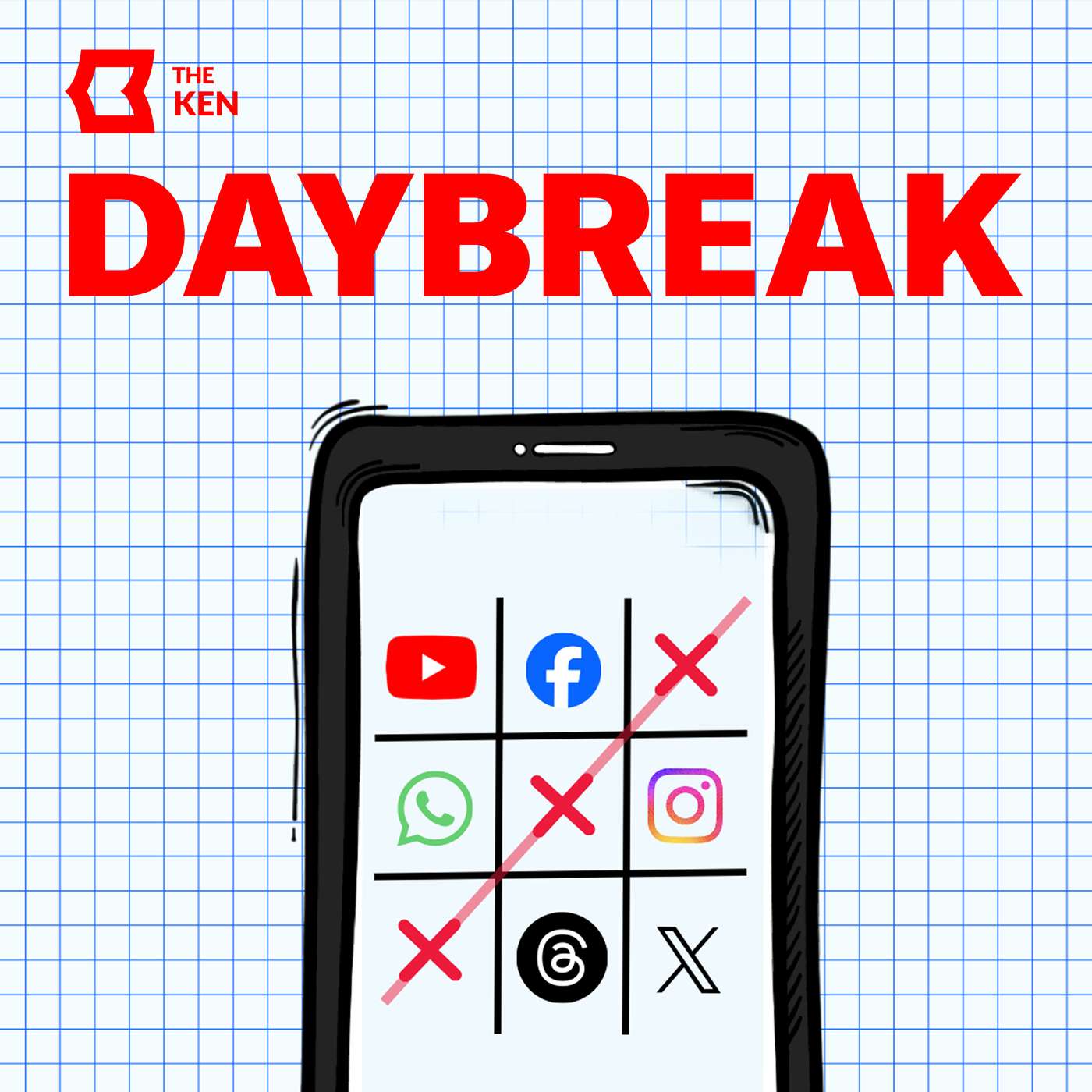
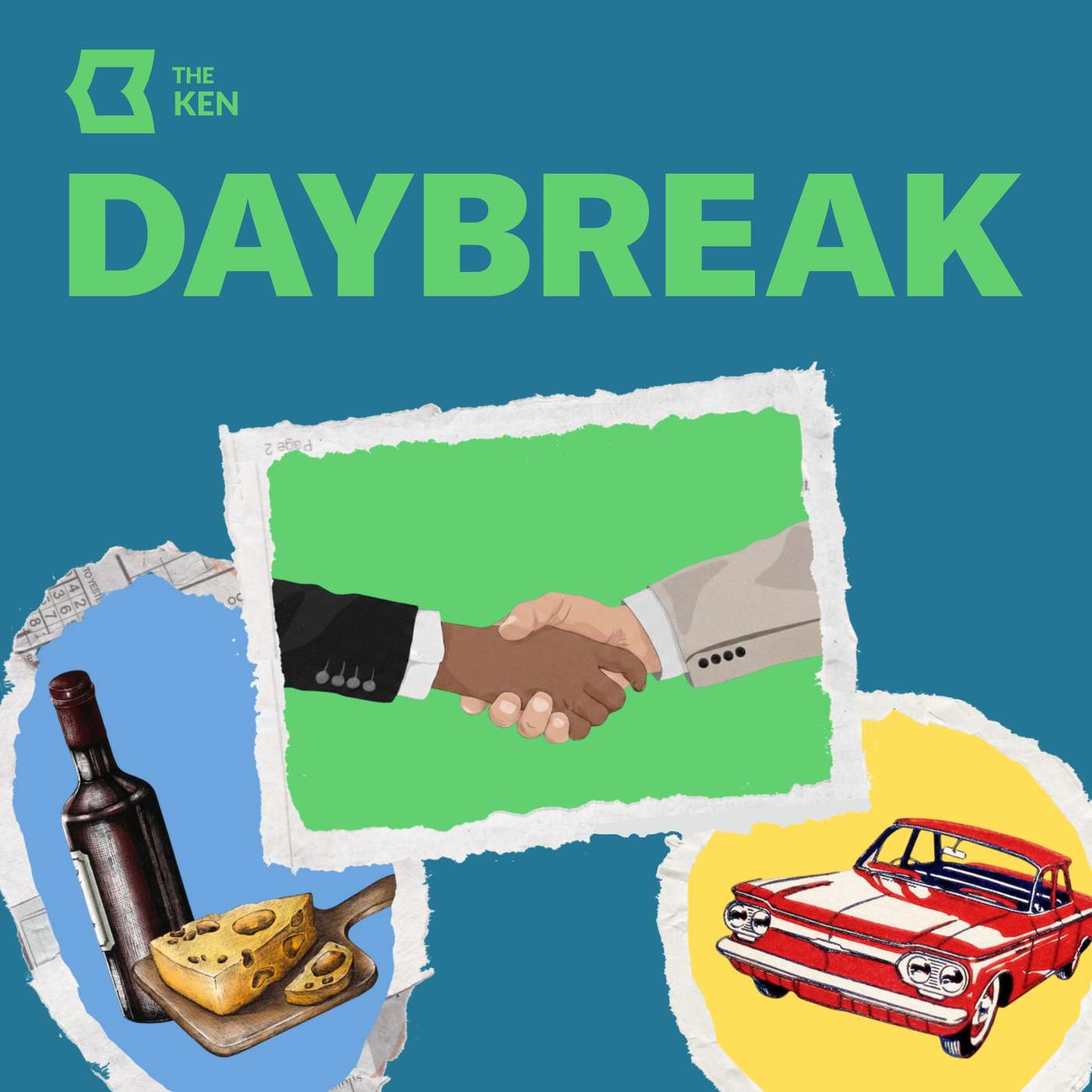

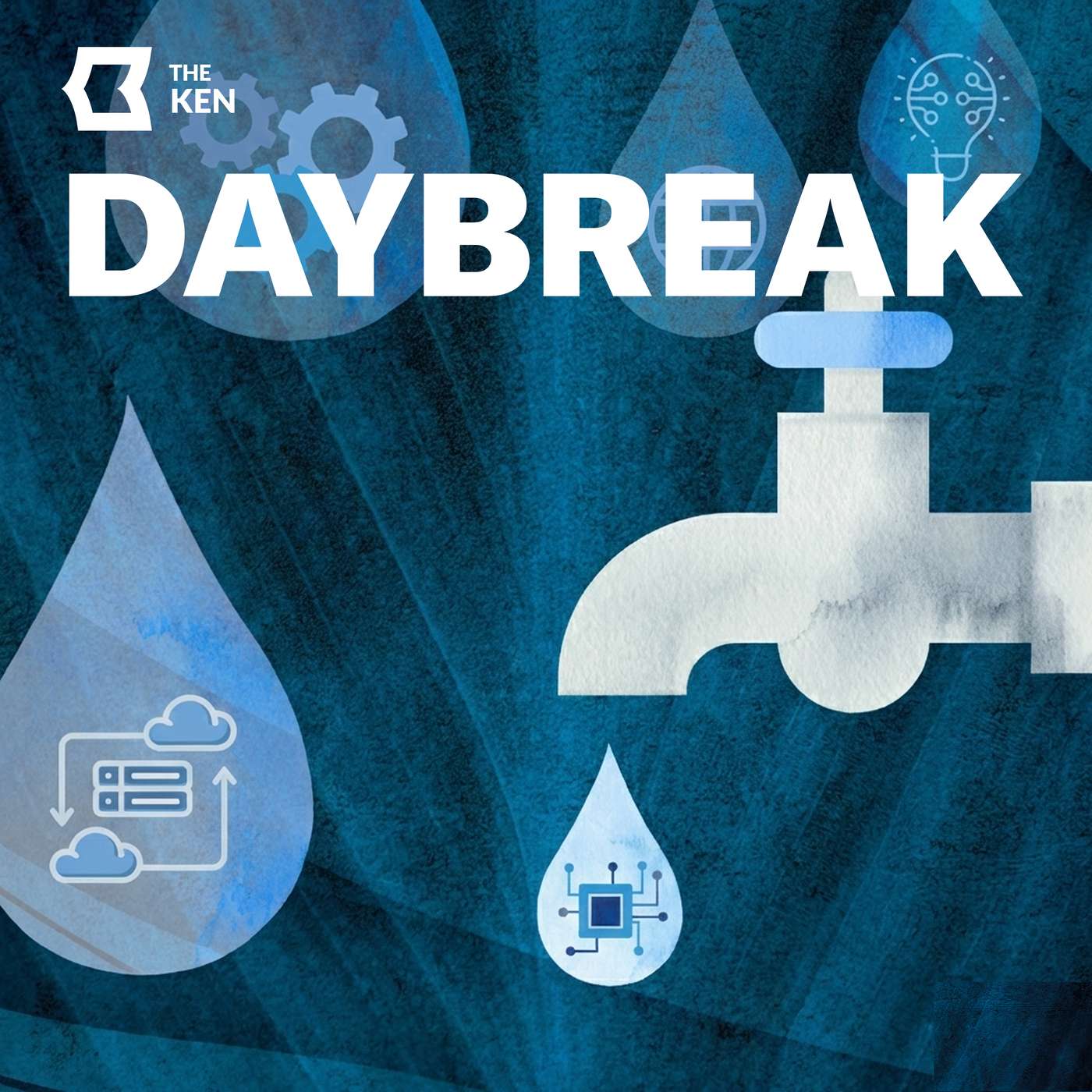
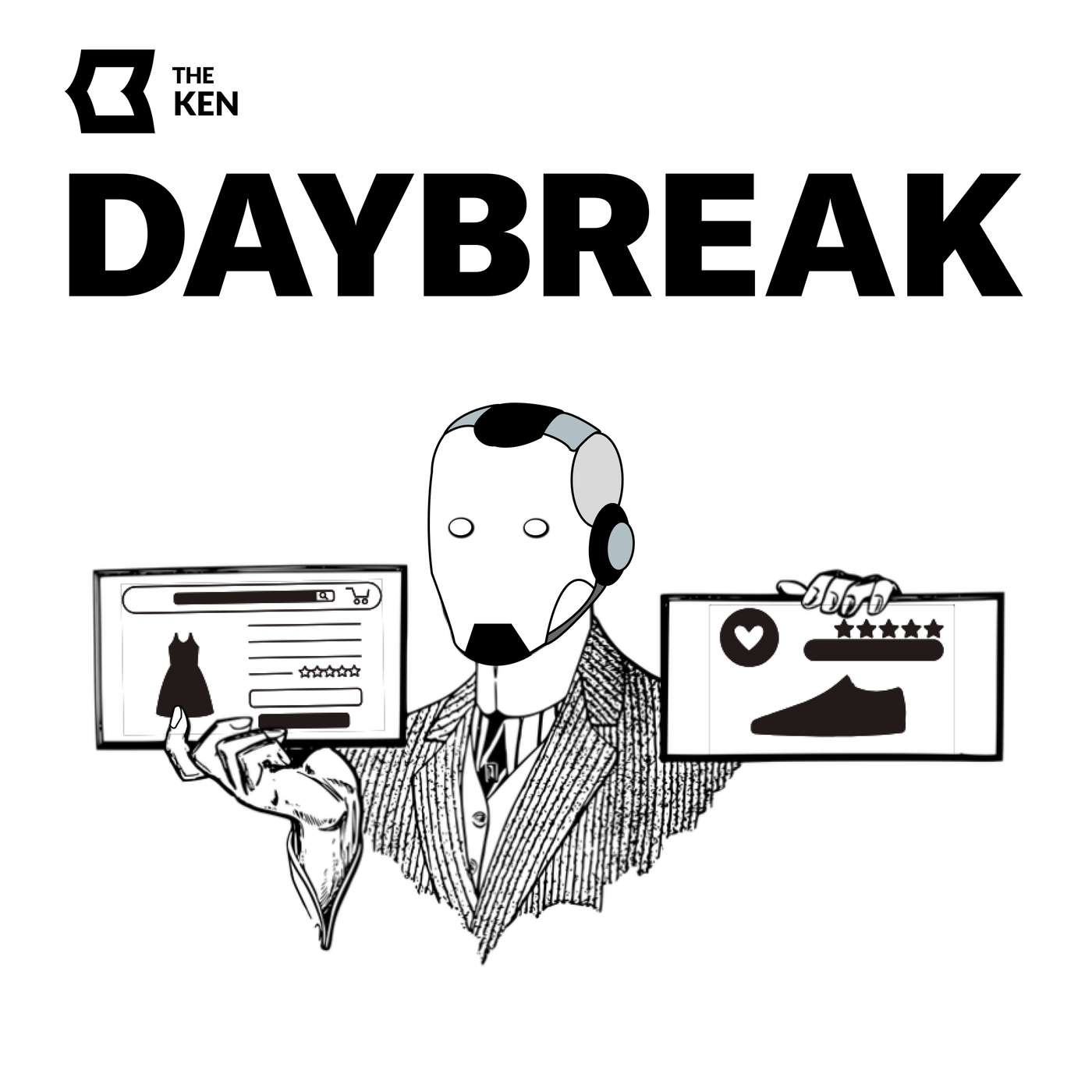
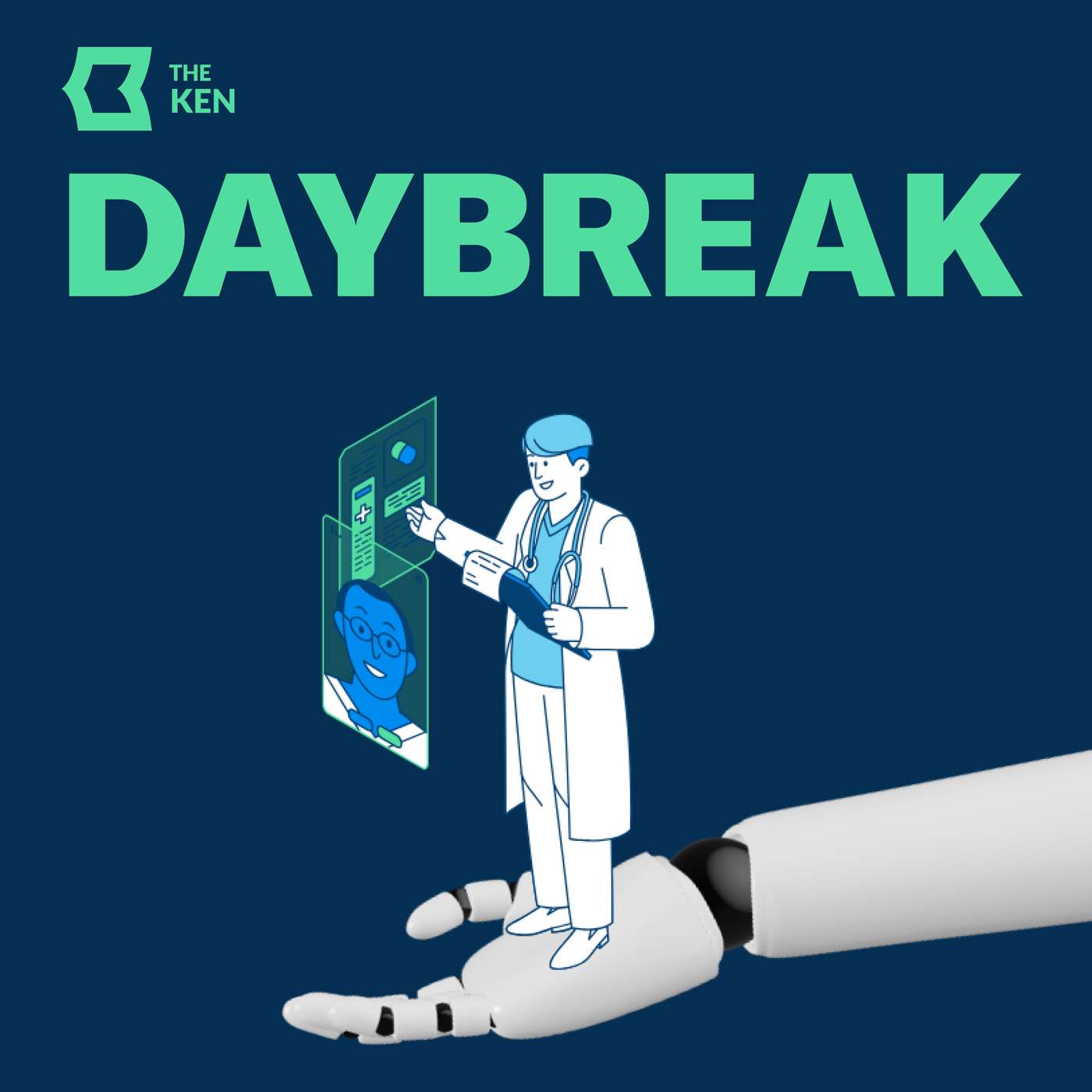

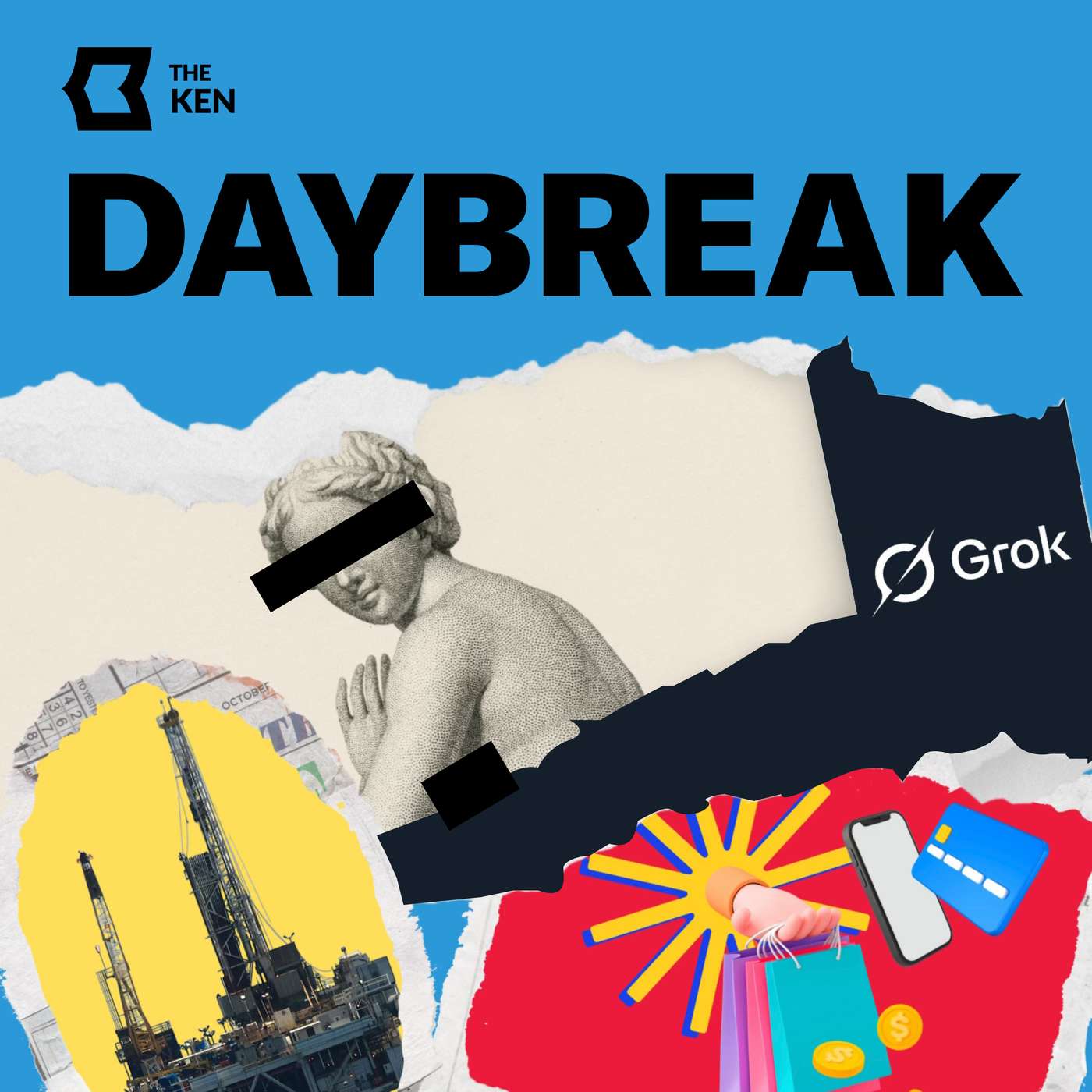
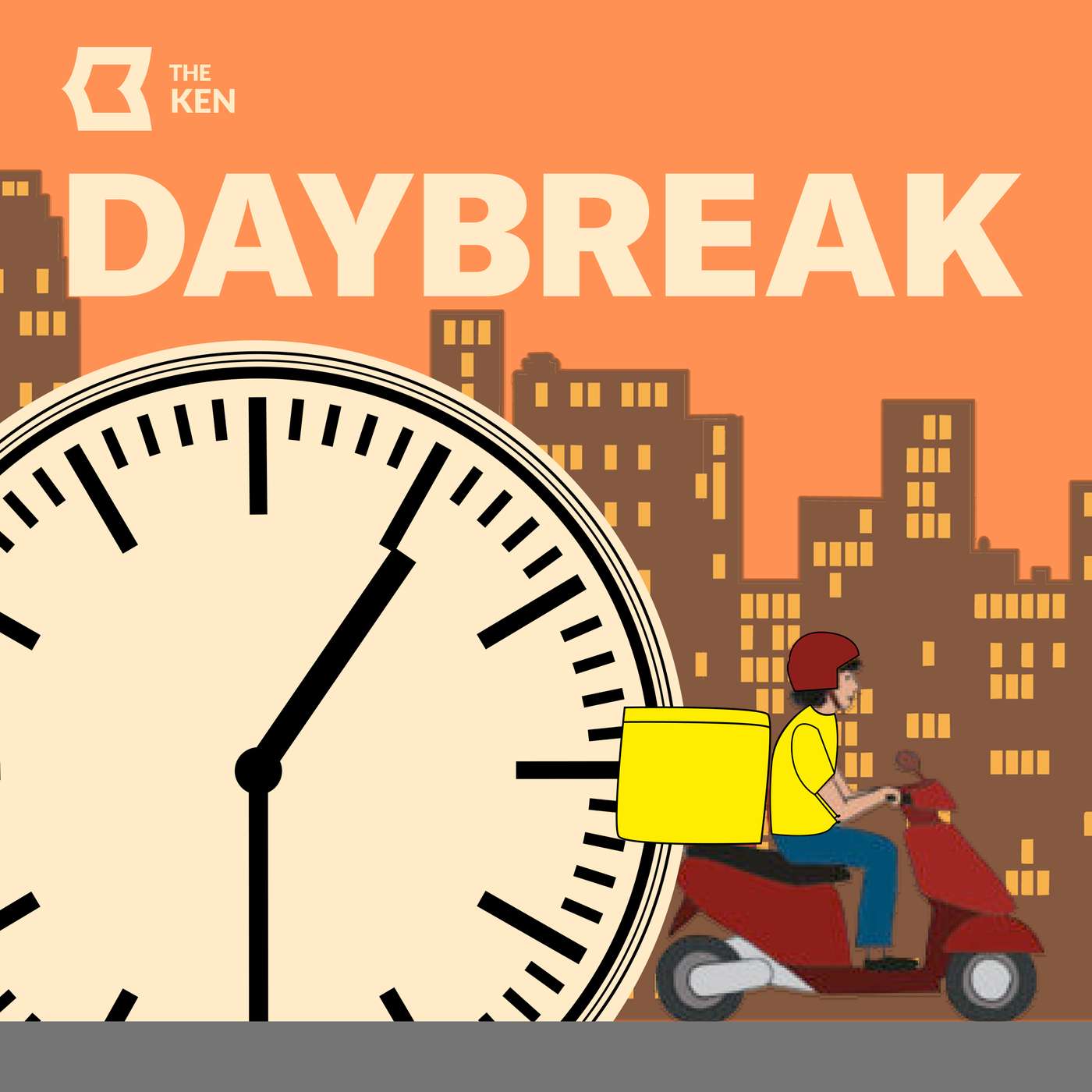



lol the roadshitters are talking about AI
Ruined my morning. Got a person who has no connect with the ground reality in India and wants to copy ideas from the US and force down our throats. absolute disgrace!
Very important investment regulatory issue highlighted.